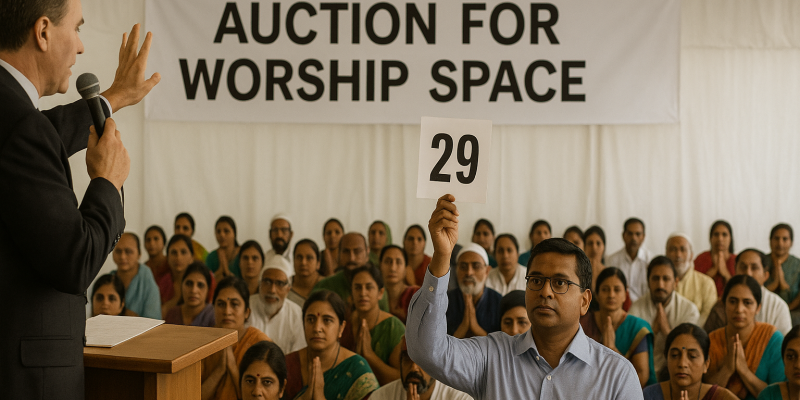By: Karnvir Mundrey
India’s rich tradition of large public gatherings—be it religious festivals, political rallies, or weddings—has long been a cornerstone of its cultural and democratic fabric. However, as population density increases and urban infrastructure strains under the weight of unregulated crowds, it’s time we introduce structured limits to prevent accidents, chaos, and civic breakdown.
Why Crowding Must Be Controlled
Stampedes, delayed emergency responses, blocked traffic, and disruption to local communities have become all too common. Whether it’s during a yatra, a campaign rally, or a destination wedding, the absence of enforceable crowd size policies puts lives at risk and burdens municipal systems.
Tragic Example: The 2013 Kumbh Mela Stampede
On February 10, 2013, during the Maha Kumbh Mela at Allahabad, a stampede at the railway station resulted in the deaths of 36 people and injuries to dozens more. Overcrowded platforms, poor crowd flow management, and a breakdown of communication among security forces led to panic. With more than 30 million people present that day, authorities struggled to manage the surge—a stark reminder that spiritual fervor must be matched with logistical planning. This tragedy exemplifies how even revered, centuries-old events can turn fatal without crowd regulation.
Towards a Scientific Formula: People per Square Foot
India needs to adopt a scientific and location-specific approach to managing public gatherings. The number of attendees allowed at any event should be determined based on measurable criteria:
- Usable Area (in square feet): Define a per-person space requirement (e.g., minimum 6 sq. ft. per person).
- Parking Capacity: Events must align with local infrastructure and accommodate vehicle inflow without overwhelming neighborhoods.
- Emergency Services: Ambulances, fire services, and trained marshals must be accessible, with unblocked paths for entry and exit.
- Accessibility Provisions: Elderly and disabled attendees must have guaranteed services—seating, ramps, toilets.
- Impact on Surroundings: Cap limits based on proximity to schools, hospitals, and environmentally sensitive zones.
This crowd formula should be enforced like the Floor Space Index (FSI) used to regulate real estate. Just as no builder can add floors indiscriminately, no organizer should be allowed to invite unlimited guests.
A Balanced Approach to Religious Gatherings
Religious events hold deep emotional and spiritual significance. To preserve this while managing scale, a tiered ticketing system can help:
- 85% of passes free or nominally priced, allocated via lotteries or public registration.
- 10% sold at market rates for cost recovery and early bird access.
- 5% auctioned to accommodate serious devotees who are willing to contribute for better access.
This system ensures fair access, disincentivizes black-market ticketing, and allows resource generation for improved logistics.
The Role of Authorities
Just like building construction requires civic approvals, event size and logistics should be vetted and cleared by:
- Municipal bodies
- Police, fire, and health departments
- Transport and crowd control teams
- State departments (tourism, religion, etc.)
A central digital portal can track permissions, ticketing, and live crowd data using QR codes, drones, and real-time sensors. Surveillance must be paired with trained personnel, especially in tier-1 and tier-2 cities.
Regulate to Celebrate Responsibly
Public gatherings reflect India’s vibrant culture and democracy. But freedom must go hand-in-hand with responsibility. When crowds swell without planning, the result is often injury, death, or civic disruption.
Events should bring people together—not endanger them. A well-thought-out policy based on space, infrastructure, safety, and fairness will protect both the spirit and the sanctity of public celebrations. Let us regulate—not to restrict joy, but to preserve it















Comments